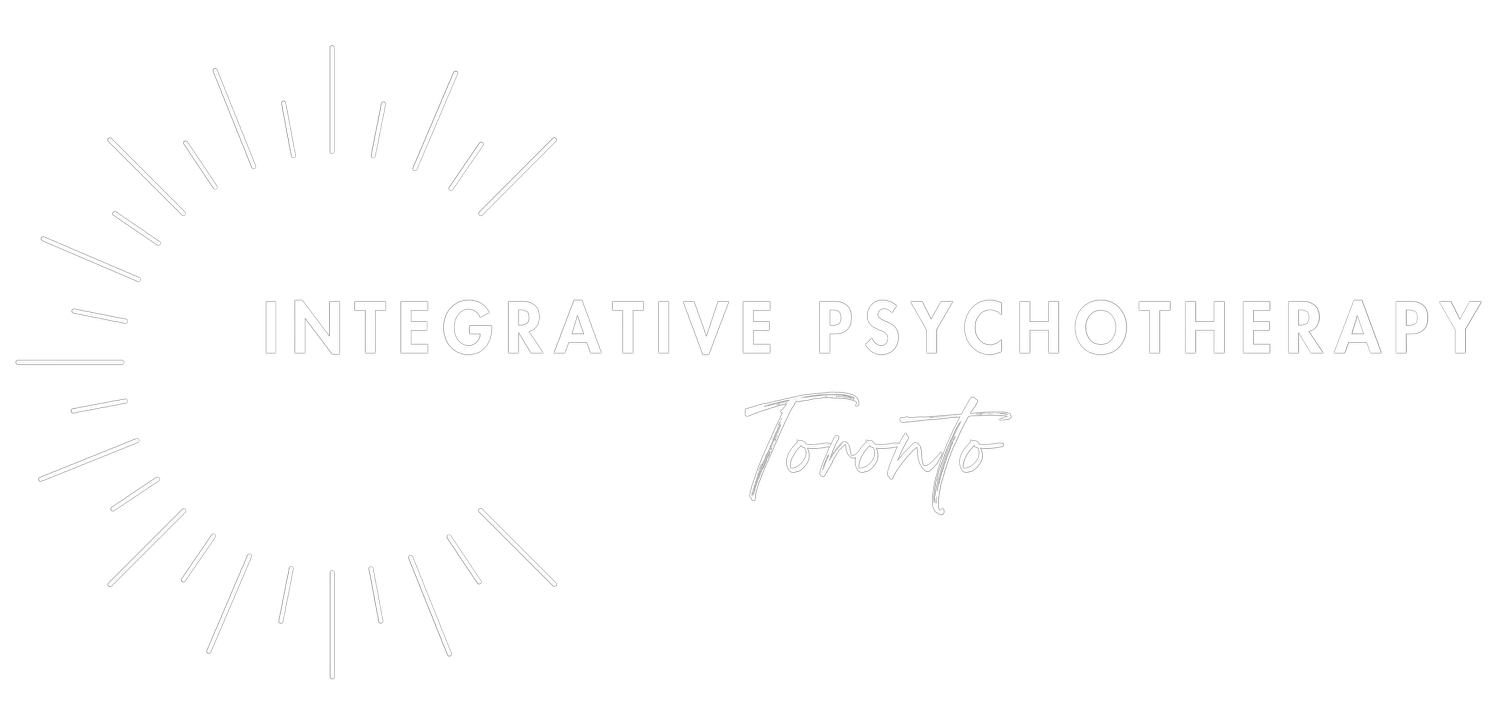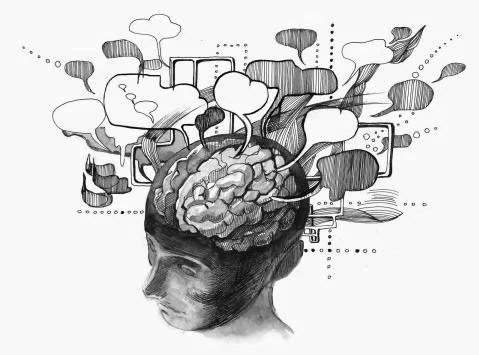“Anxiety: When “On Alert” is our default setting”
Anxiety is more than just worry—it’s an all-consuming state of tension, fear, and overwhelm that leaves you feeling trapped in your own mind. When anxiety becomes chronic, it can cast a shadow over every part of your life, robbing you of joy, clarity, and connection. Whether it’s persistent worry, panic attacks, or that gnawing sense of dread that never quite leaves, anxiety has a way of making you feel like you're always bracing for something terrible.
At Integrative Psychotherapy Toronto, we offer more than just therapy—we provide a compassionate space where you can finally start to unwind the knots that anxiety has tied inside you. We understand how exhausting it is to feel like your mind and body are always on high alert, and our integrative approach offers a pathway to lasting calm. With evidence-based therapies that work with your nervous system, we help you break free from the grip of anxiety and regain control over your life.
Anxiety affects more than just your thoughts—it’s written into your body. It shows up in the rapid heartbeat that won’t slow down, the tightness in your chest, the constant muscle tension, and the restlessness that keeps you awake at night.
Our therapeutic approach works not just with your mind but also with the body’s wisdom, helping you release the anxiety that lives deep in your nervous system. You deserve to feel safe, calm, and grounded in your own life, and we’re here to help you get there.
What is Anxiety?
Anxiety is a natural response of the nervous system to stress or perceived threats. In healthy amounts, it helps us stay alert and motivated. But for those who struggle with chronic anxiety, the nervous system is in a constant state of overdrive—frequently triggering the "fight, flight, or freeze" response even when there’s no real danger. This leads to a constant feeling of unease and often makes it difficult to relax or feel in control
What Anxiety Looks and Feels Like
Anxiety manifests in many different ways, and it often doesn’t look the same for everyone. From high-functioning anxiety to panic attacks, and even forms like OCD, anxiety can impact both your mind and body in profound ways. Some symptoms may be obvious, while others are more subtle, often misinterpreted as personality traits rather than signs of underlying anxiety.
Common Symptoms of Anxiety
Anxiety is more than just worry—it involves a complex interplay of mental, emotional, and physical symptoms:
Mental Symptoms:
Racing thoughts: Your mind is always running through worst-case scenarios, or replaying conversations and events.
Overthinking and chronic planning: If you find yourself unable to make decisions or constantly planning for every possible outcome, this could be anxiety-driven. The urge to prepare for everything reflects a desire to control your environment to reduce uncertainty
Obsessive thinking: This could include thoughts or rituals related to OCD, such as repeatedly checking, counting, or washing to soothe anxious feelings.
Emotional Symptoms:
Constant worry or dread: Feeling like something bad is about to happen, even when there's no real reason for concern.
Irritability: Feeling on edge and snapping at others easily, even over minor things.
Panic attacks: Sudden waves of intense fear that often feel life-threatening. These can come on suddenly and are accompanied by symptoms like a racing heart, shortness of breath, or an overwhelming urge to escape.
Physical Symptoms:
Tightness in the chest and muscle tension: Anxiety often causes your body to stay in a state of fight-or-flight, leading to chronic tension, especially in your neck, shoulders, or chest.
Digestive issues: The gut is sensitive to anxiety, and symptoms like nausea, upset stomach, or IBS-like symptoms are common manifestations.
Rapid heartbeat or shortness of breath: Many people experience these during panic attacks, but these symptoms can also be present in mild, everyday anxiety.
High-Functioning Anxiety
Anxiety doesn’t always look like panic—it can show up in your constant need to stay busy, your difficulty saying “no,” or your inability to stop worrying about the future.
One lesser-known form is high-functioning anxiety, where outwardly, you may seem like you have it all together—meeting deadlines, excelling at work, and managing a busy schedule—but internally, you feel constantly stressed, overwhelmed, or exhausted.
People with high-functioning anxiety often struggle with perfectionism, chronic overthinking, and difficulty relaxing, but because they appear "successful," their anxiety is often dismissed or overlooked.
Our Psychotherapists
BECAUSE TOGETHER WE REACH FURTHER
How Therapy Works for Anxiety
Therapy helps by targeting the root causes of anxiety, teaching you how to regulate your nervous system and respond to stressors in a healthier way. At Integrative Psychotherapy Toronto, we use a variety of therapies to help clients recognize and reduce the physical and emotional tension stored in the body. This holistic approach works to calm both the mind and body, providing long-term relief from anxiety’s grip.
At Integrative Psychotherapy Toronto, we specialize in holistic, trauma-informed care. Our therapists combine advanced modalities like EMDR, Somatic Therapy, Internal Family Systems, and Deep Brain Reorienting to create a personalized treatment plan tailored to your needs. Our approach recognizes the connection between body and mind, offering a deeper level of healing that addresses the root causes of anxiety, not just the symptoms.
What makes us different is our commitment to integrative care. We don’t just focus on thoughts—we help you heal through your body, your emotions, and your entire nervous system. Whether your anxiety stems from long-term stress, trauma, or deeply rooted fears, we’re here to help you reclaim a sense of calm and balance.
What are the Benefits of Anxiety Therapy?
Millions of people worldwide suffer from anxiety, which is a common mental health disorder that can take different forms, such as panic attacks, phobias, or generalized anxiety. When left untreated, anxiety can have severe impacts on a person's mental and physical health, greatly reducing their quality of life. Fortunately, anxiety therapy can help. It offers numerous benefits, including:
Learning coping skills: Anxiety therapy provides patients with crucial coping mechanisms that assist them in dealing with symptoms of anxiety. Through therapy, patients can recognize triggers, acquire relaxation techniques, and manage intrusive thoughts that make anxiety worse.
Increased self-awareness: Anxiety therapy provides a safe environment for individuals to explore their thoughts and feelings without fear of being judged. A trained therapist guides patients through the process of expressing themselves openly, reflecting on their experiences, and gaining a deeper understanding of their emotions. This helps patients develop self-awareness and ultimately improves their mental well-being.
Improved relationships: Experiencing anxiety can put a strain on relationships, particularly if a person is frequently irritable, easily agitated, or prone to mood swings. Therapy is a helpful tool for individuals to recognize unhealthy communication patterns, set boundaries, and effectively communicate their needs. This can lead to better relationships and a stronger support system.
Reduction in physical symptoms: Physical symptoms like headaches, muscle tension, and digestive problems can be caused by anxiety. Therapy can teach relaxation techniques and reduce stress levels to alleviate these symptoms, leading to an improvement in overall quality of life.
What Types of Therapy are Helpful for Anxiety?
We offer a range of trauma-focused, body-based therapies that go beyond traditional cognitive therapies like CBT:
EMDR (Eye Movement Desensitization and Reprocessing): EMDR helps to reprocess traumatic memories and stressful events stored in the brain that may be triggering anxiety. It’s particularly effective for PTSD, anxiety, and panic disorders.
Somatic Therapy: This approach works with the body to release tension and trauma held in the nervous system, helping to reduce the physical manifestations of anxiety
Internal Family Systems (IFS): IFS helps clients explore and heal the different “parts” of themselves that may be contributing to anxiety—such as protective parts that hold onto fear
Deep Brain Reorienting (DBR): DBR works by accessing the brain’s physiological responses to trauma, allowing you to process and resolve deep-rooted fears and anxieties
What to Expect in Anxiety Therapy
During therapy, you’ll work closely with a trained psychotherapist who will help you:
Identify your triggers and how anxiety manifests in your body and mind.
Develop grounding techniques to regulate your nervous system and prevent anxiety from escalating.
Process underlying trauma or unresolved emotions that may be fueling your anxiety.
Build resilience and learn coping strategies to manage stressful situations with confidence.
Therapy for anxiety is a collaborative, compassionate process that meets you where you are. Sessions typically involve both talk therapy and body-based techniques, ensuring that both your mind and body are involved in the healing process.
Frequently Asked Questions About Anxiety
Which therapy is best for anxiety?
When seeking anxiety therapy, the most suitable type of therapy varies based on the individual and their unique requirements. Somatic Psychotherapy is ideal for those who wish to investigate the connection between the mind and body and how past trauma or stress may be impacting their overall physical and emotional health. EMDR, which employs eye movements to assist in processing traumatic experiences, is another widely used therapy for anxiety.
At Integrative Psychotherapy Toronto, we use EMDR, Somatic Therapy, Internal Family Systems, and Deep Brain Reorienting to treat anxiety. These therapies go beyond traditional methods by addressing both the emotional and physical components of anxiety
Is therapy worth it for anxiety?
Therapy is a highly effective treatment option for anxiety. Anxiety can adversely affect different areas of a person's life, such as work and personal relationships. Through therapy, individuals can acquire coping mechanisms to manage their anxiety, reflect on past experiences that may be causing their anxiety, and gain a better understanding of themselves and their triggers.
What types of anxiety are there?
Anxiety can come in different forms, such as generalized anxiety disorder (GAD), panic disorder, social anxiety disorder, and specific phobias.
How long does anxiety therapy treatment last?
The duration of anxiety therapy may differ based on the person and the specific type of therapy used. While some individuals may experience positive changes in just a few sessions, others may require longer treatment. The number of sessions required depends on the severity of the anxiety and the person's progress in therapy.
Can anxiety therapy help with panic attacks?
Yes, therapy is highly effective for treating panic attacks. In particular, techniques like Somatic Therapy and EMDR are particularly helpful in reducing the intensity and frequency of panic attacks.
Is anxiety therapy covered by insurance?
Most of our therapy services, including treatments for anxiety, are covered by insurance in Ontario. We recommend contacting your provider for specific coverage details.
How is Integrative Psychotherapy Toronto different from other therapy clinics?
We take an integrative approach that combines body-based therapies like Somatic Therapy and Deep Brain Reorienting with trauma-focused methods like EMDR and IFS, creating a comprehensive healing experience
Ready to Take the First Step Toward Healing?
If you’re ready to find relief from anxiety and begin a journey toward lasting calm and balance, Integrative Psychotherapy Toronto is here to support you.
Reach out today to schedule your consultation and discover how our integrative approach can transform your life.













